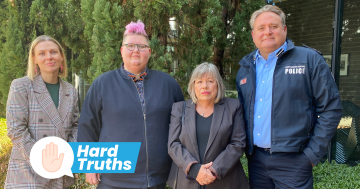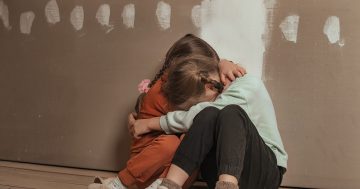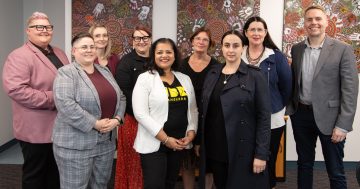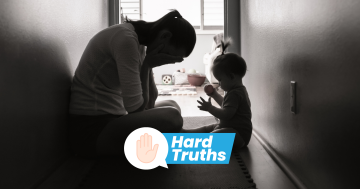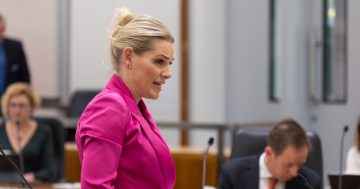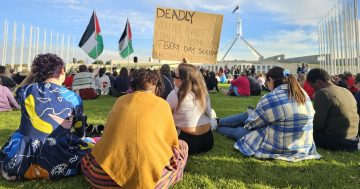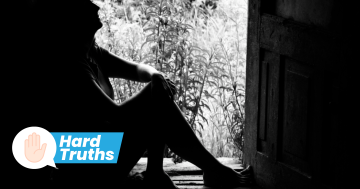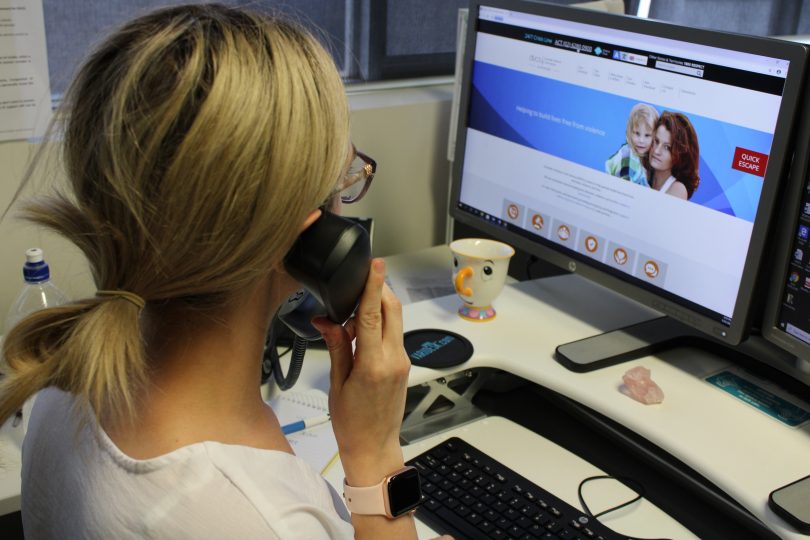
Authorities are concerned about the rise in incidences of domestic violence since the lockdown came into effect. Photo: Supplied.
Sammy Reardon knows what domestic violence can do to children because of what it did to her sons.
“Having boys, it’s so important that they know that it’s not okay,” the mother-of-two said.
“The children, they hurt just as much as you do (but it’s also a case of) monkey see, monkey do.”
The Domestic Violence Crisis Service (DVCS) not only stayed open during lockdown but adapted its 24/7 crisis intervention and face-to-face consultations for at-risk Canberrans.
DVCS CEO Sue Webeck* said lockdown created more demand for their service, with more pressure for emergency accommodation to escape violence.
“There is an increased level of complexity that many of our clients are facing, including limited access to safe spaces to reach out for support,” Ms Webeck said.
She said it was important to remember that domestic abuse is more than physical violence, it can include emotional, sexual, social, verbal, spiritual and economic coercion.
Ms Reardon said she mostly faced psychological abuse.
“He didn’t hit me or beat me up and things like that, it was more psychological. There were some incidents of actual violence but, for me, I never saw it like that.”
A 2020 Australian Institute of Criminology survey found that more than half of its nearly 8000 female respondents reported having at least one child with their abusive partner. About 40 per cent were living with children at the time of their abuse. About one in 20 was pregnant at the time of the abuse.
“It is important we respond to the needs of children and young people when we respond to family and domestic violence,” Ms Webeck said, “and have specific programs and responses available to ensure the health, safety and wellbeing of children and young people.”
Act for Kids is a national charity that provides free therapy and support to children, and their families, at risk of and experiencing child abuse and neglect.
Katrina Lines, the CEO of Act for Kids, said there were many impacts that children felt when living in abusive households.
“The lockdowns can be associated [with] losing work, financial stress, working from home and homeschooling,” she said, “Children are at risk in these situations and the protective factor of school is not available.”
The trauma children have from living with abuse and neglect impacts them for their whole lives, Ms Lines said.
“The earlier in life a child experiences trauma, the more likely they will experience developmental delays and psychological impairments.”
Much like DVCS, Act for Kids has noticed a “concerning” increase in demand for services during this year’s lockdowns across the country.
“While a community is in lockdown, calls to police and child protection services decrease. Once a lockdown is lifted, reports increase significantly, sometimes up to 50 per cent,” Ms Lines said.
Every Man is a local counselling service that provides confidential conversations with practitioners, focusing on men and their families, that continued its programs through the pandemic.
“Last year, we saw an increase, probably four or five weeks into lockdown, so we’ve extended ourselves to have a crisis line,” said Every Man Violence Prevention Services Manager Simon Port.
Helping those affected by domestic abuse can be tricky, Mr Port said, but if we’re aware it’s happening “we need to do something about it, don’t sit back and don’t be a bystander.”
“The big thing that we can do is make a report, to maybe have a conversation with the woman and offer her the opportunity of contacting other people.”
ACT Minister for Women, Yvette Berry, said it was necessary for governments to know how to make things better for victims.
“It’s really important and vital for services and governments to understand what we can do better,” she said.
Ms Reardon said she felt she had to get help for her children, as well as herself.
“I lived for so long thinking my life was over … I think the biggest thing is, no matter what, you just have to keep trying for your children.”
Despite the abuse Ms Reardon has faced over the years, she says she’s in a much better place now.
“The last few years, particularly, have been quite bad, but… I’m in a great place [now],” she said.
“I really am just a real strong believer, and you’ve got to believe that it can be different.”
If you or someone you know is impacted by domestic or family violence, you can call:
- DVCS: (02) 6280 0900
- Every Man: (02) 6230 6999
- Lifeline: 13 11 14
- Relationships Australia: 1300 364 277
- In case of an emergency call 000
Kaitlyn Lewis is a final year journalism student at the University of Canberra and a participant in the digital news project with Region Media.
*Edited to correct quote attribution












